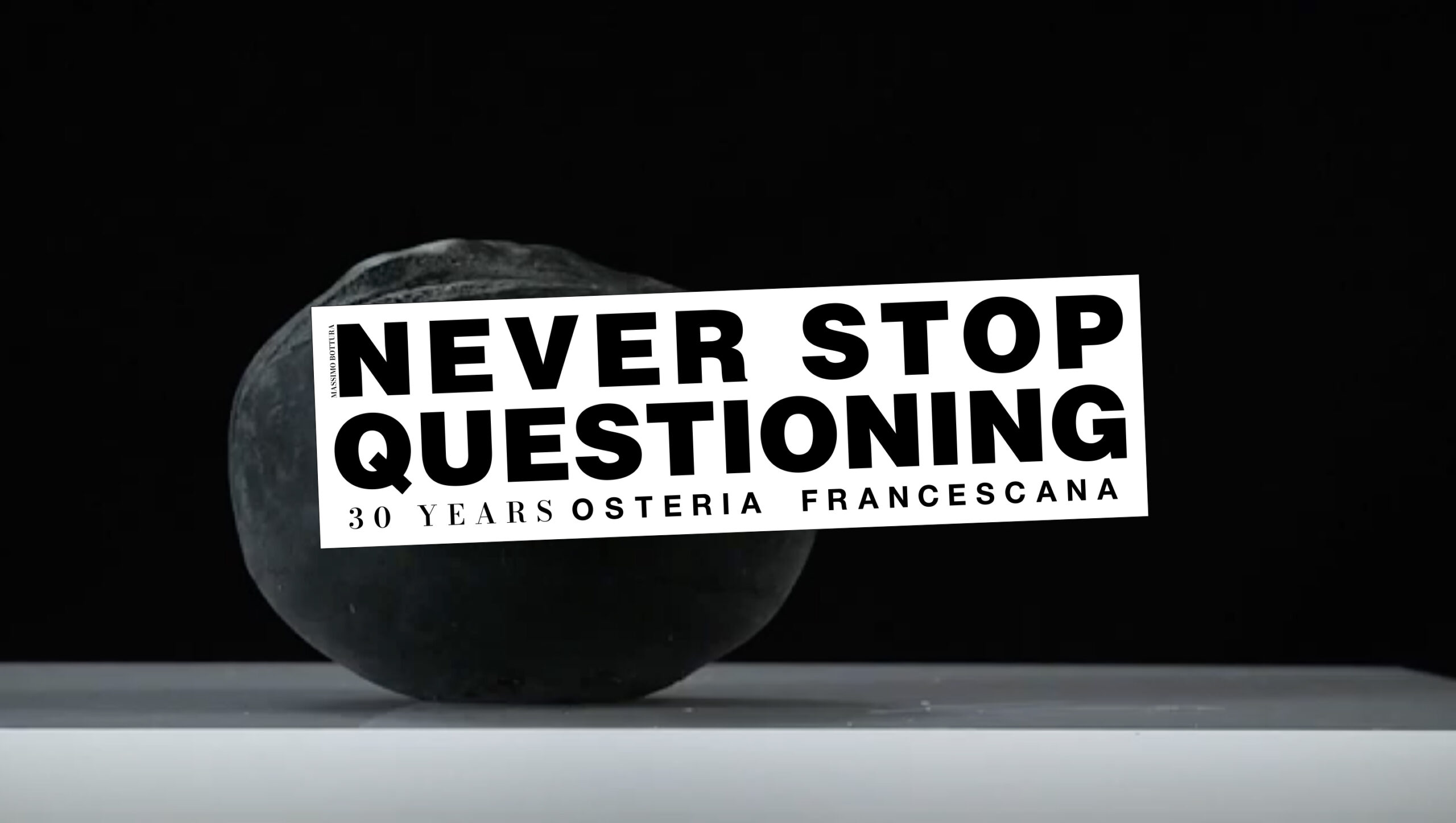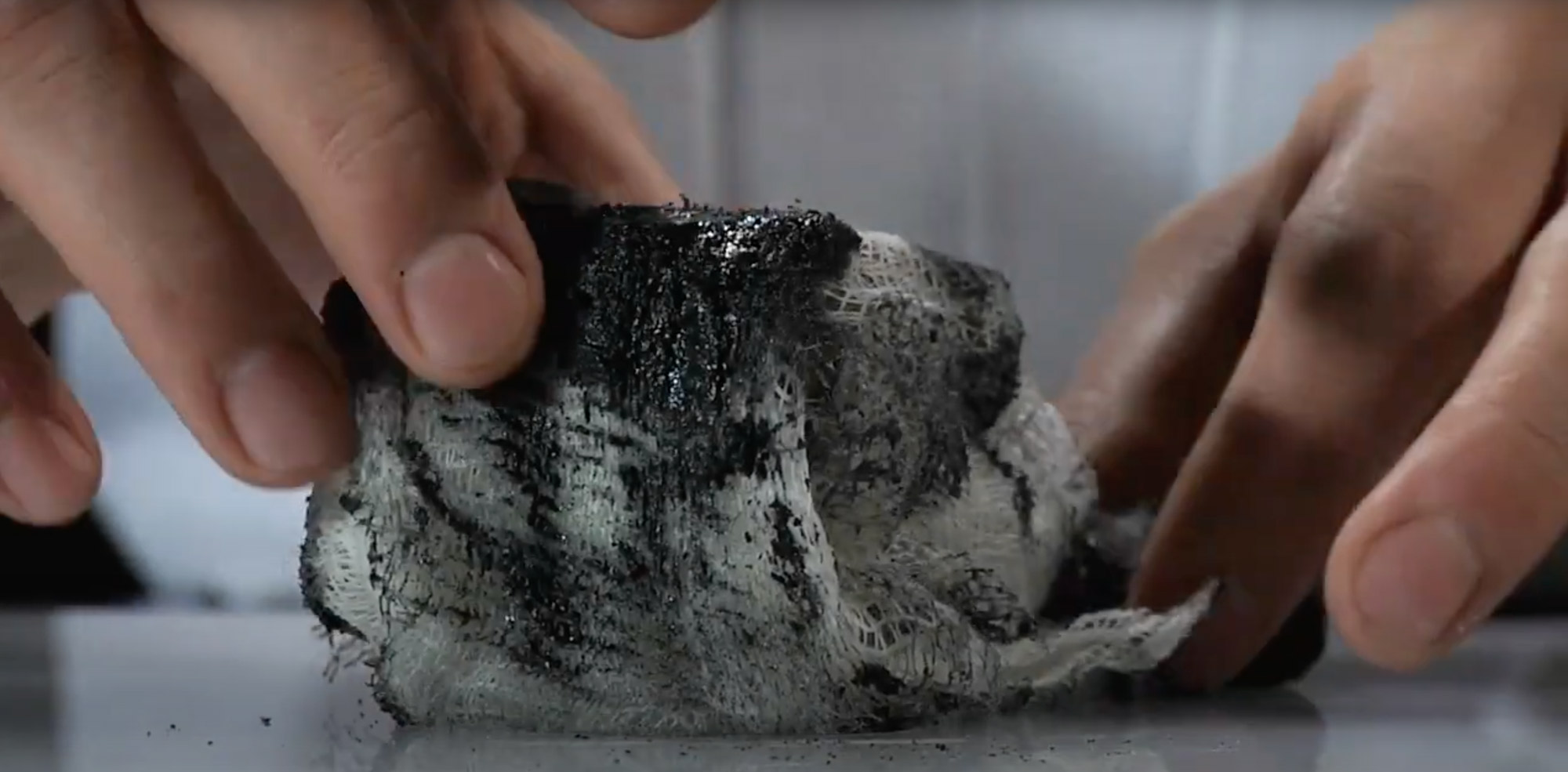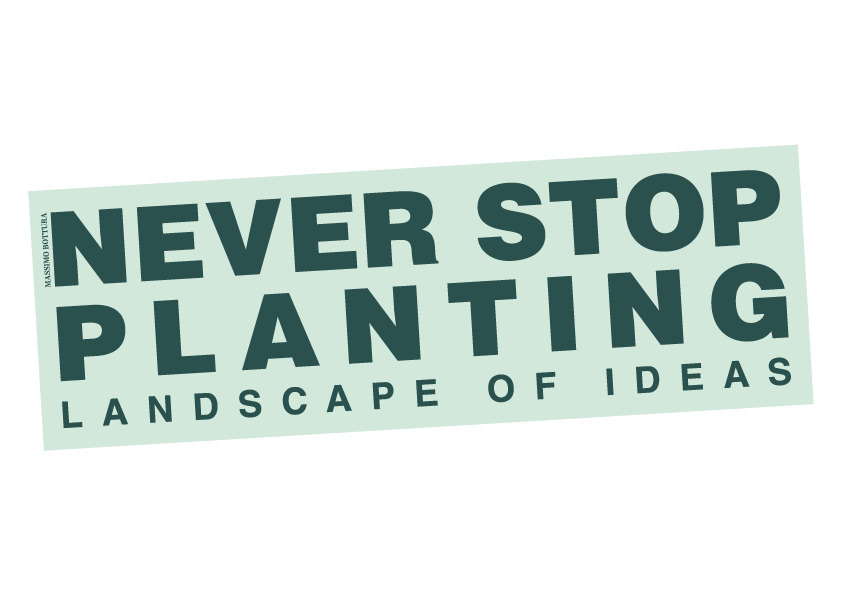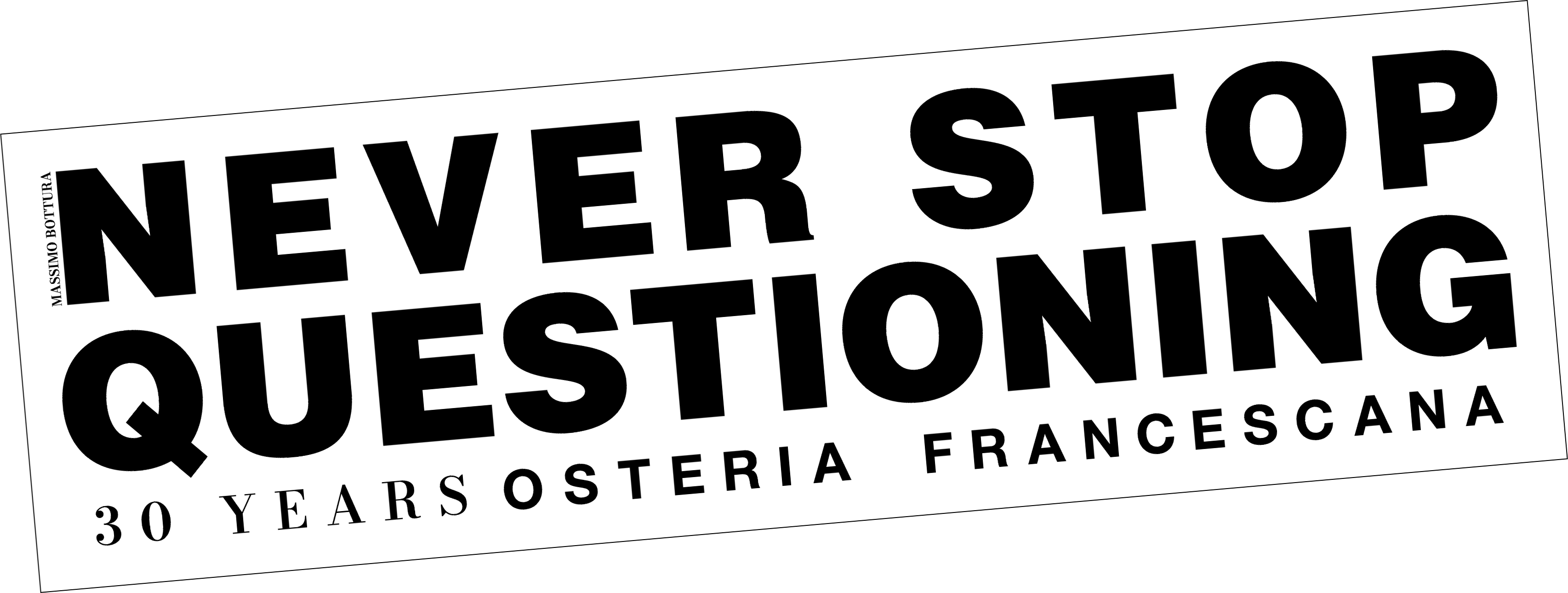
Smoke, Knead, Wrap, Cut, Cook, Break.
Search, Think, Unite, Confront, Translate.
Fare Mondi: Making Wor(l)ds.
WHAT LANGUAGE DO YOU SPEAK?
All the tongues of the world.
In 2009 I was invited to translate the concept of “CONTAMINATION” into a recipe for the Festival of Contemporary Art in Faenza under the theme of the 53° Venice Biennale “Fare Mondi – Making Wor(l)ds.”
I interpreted the theme through the eyes of the artist Lucio Fontana, best known for his slashed canvases. Fontana’s belief that the act of breaking the pictorial surface was not a moment of destruction but creation deeply resonated with my own creative process.
With slashes, Fontana was looking for the fourth dimension, beyond the picture frame, into the unknown. With the veal tongue – the classic Italian ingredient chosen for the recipe – I was looking to Making Wor(l)ds beyond Italian confines, across time and space.
Veal tongue has deep culinary heritage in Italy.
It is a large piece of meat, historically inexpensive, therefore often chosen for family gatherings—boiled and served with various condiments such as salsa verde and sweet and spicy fruit mostarda.

Credits: “Tutte le lingue del mondo” by Roberto Rabitti
For this recipe, the veal tongue is cooked at a low temperature, sous-vide, then wrapped and baked inside a black dough made with flour, salt, coffee grinds and vegetable carbon. It comes out looking like an object from a prehistoric ritual or a meteorite from the fourth dimension. Once removed from the crust, the tongue is served with condiments from diverse culinary traditions speaking multiple languages: tropical passion fruit with dehydrated basil seeds, coriander exotic ‘salsa verde’, Sri Lankan lentil curry, Peruvian vegetable ceviche, and Campanine apple mostarda from the Northern Italy. The mix of flavours creates a collision in the palate — blurring boundaries and widening horizons.
I am an Italian chef from Modena and I am a citizen of the world. My travels have taught me that the most interesting places are the ones where worlds meet, crash and collide; where we are forced to recognize our differences and combine our similarities. The same is true of our culinary traditions: the best way to protect them is to bring them into the future through creative confrontation, not conservation. The poetic transformation of our culinary traditions brings new layers of meaning and allows our palate to travel at the speed of light.
Cooking is Making Wor(l)ds in all the languages of the world.
In what language do you cook?
NEVER STOP QUESTIONING


Credits: “Tutte le lingue del mondo” by Roberto Rabitti


Leave a Reply